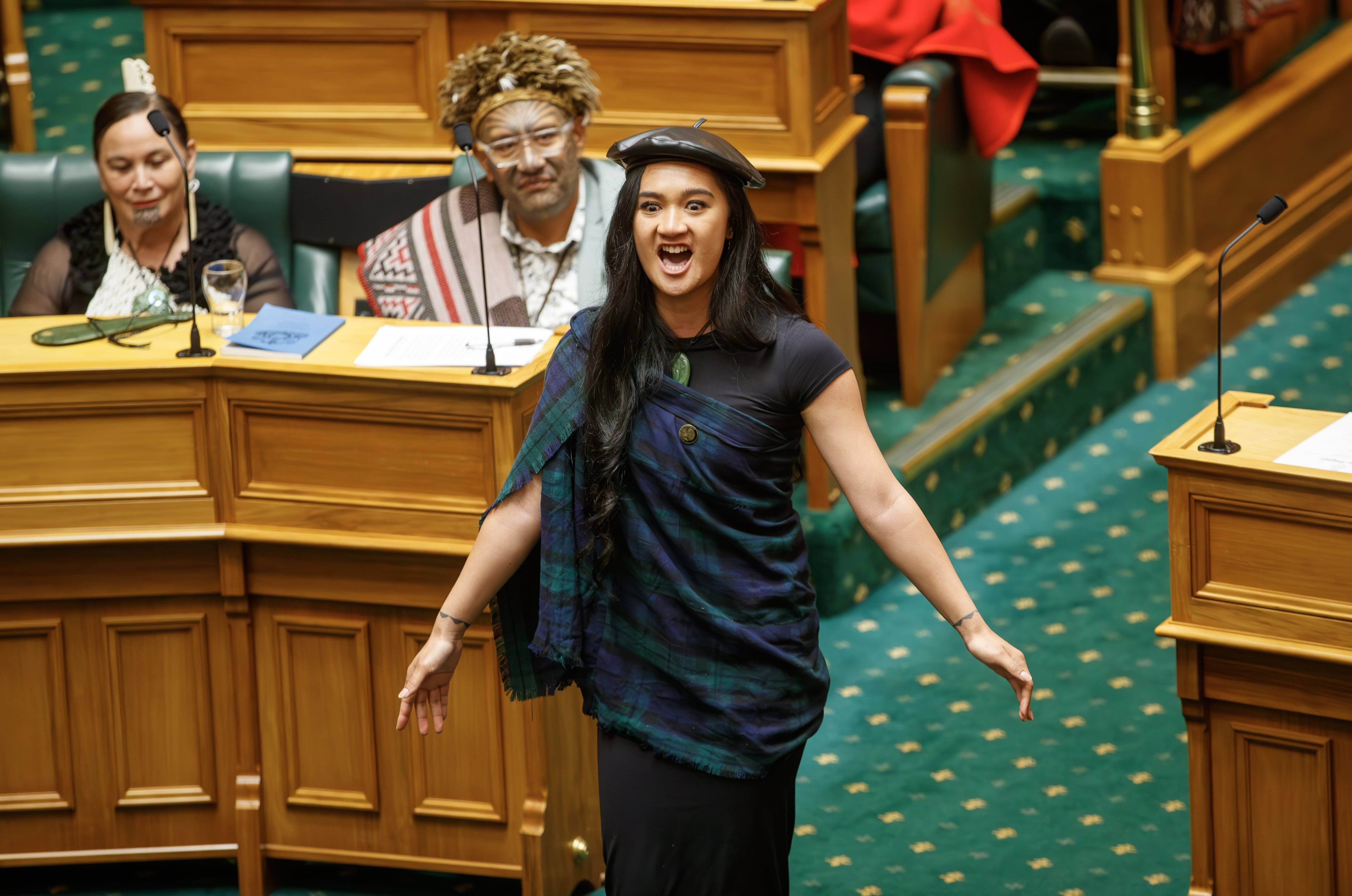Resurfaced Video of New Zealand MP Performing Haka Goes Viral in Nepal

A resurfaced video showing a New Zealand MP performing a powerful Haka during her maiden speech in Parliament has recently gone viral in Nepal. The video, which originally aired on 12 December 2023, captures Hana-Rawhiti Maipi-Clarke, a 21-year-old member of the Māori Party, making history with her electrifying display of cultural pride and defiance.
Maipi-Clarke, the youngest MP elected to New Zealand's Parliament in 170 years, delivered an emotional speech, declaring, "We have arrived. We are here. We are sailing. We are navigating, just like our ancestors once did, in the biggest ocean in the world." Her Haka performance, a traditional Māori war cry, served as a bold statement of the resilience and determination of the Māori people.
"The Haka is more than just a dance; it's a heartbeat of our nation," Clarke remarked after her speech. "It is a call to action, a challenge to the status quo, and a celebration of our identity."
The performance, which has been met with both praise and criticism, has ignited crucial conversations about Indigenous representation and rights. Supporters view it as a powerful display of cultural pride and a necessary step towards reconciliation, while critics argue that it was inappropriate for a parliamentary setting.
Despite the differing opinions, Clarke's Haka performance has brought the issue of Māori rights and representation to the forefront of the national conversation in New Zealand. The Haka, deeply significant in Māori culture, has traditionally been performed before battle but has evolved into a broader symbol of pride, unity, and defiance. Clarke's decision to perform the Haka in Parliament is seen by many as a bold step towards reclaiming Māori identity and asserting the rights of Indigenous peoples.
Though the video is nearly a year old, its recent resurgence in Nepal highlights the global impact of cultural expressions and the growing interest in Indigenous rights and representation. The video continues to spark discussions about the importance of cultural expression in political spaces and the role of parliament in reflecting the diversity of a nation.




![From Kathmandu to the World: How Excel Students Are Winning Big [Admission Open]](https://nepalaaja.com/img/70194/medium/excel-college-info-eng-nep-2342.jpg)
